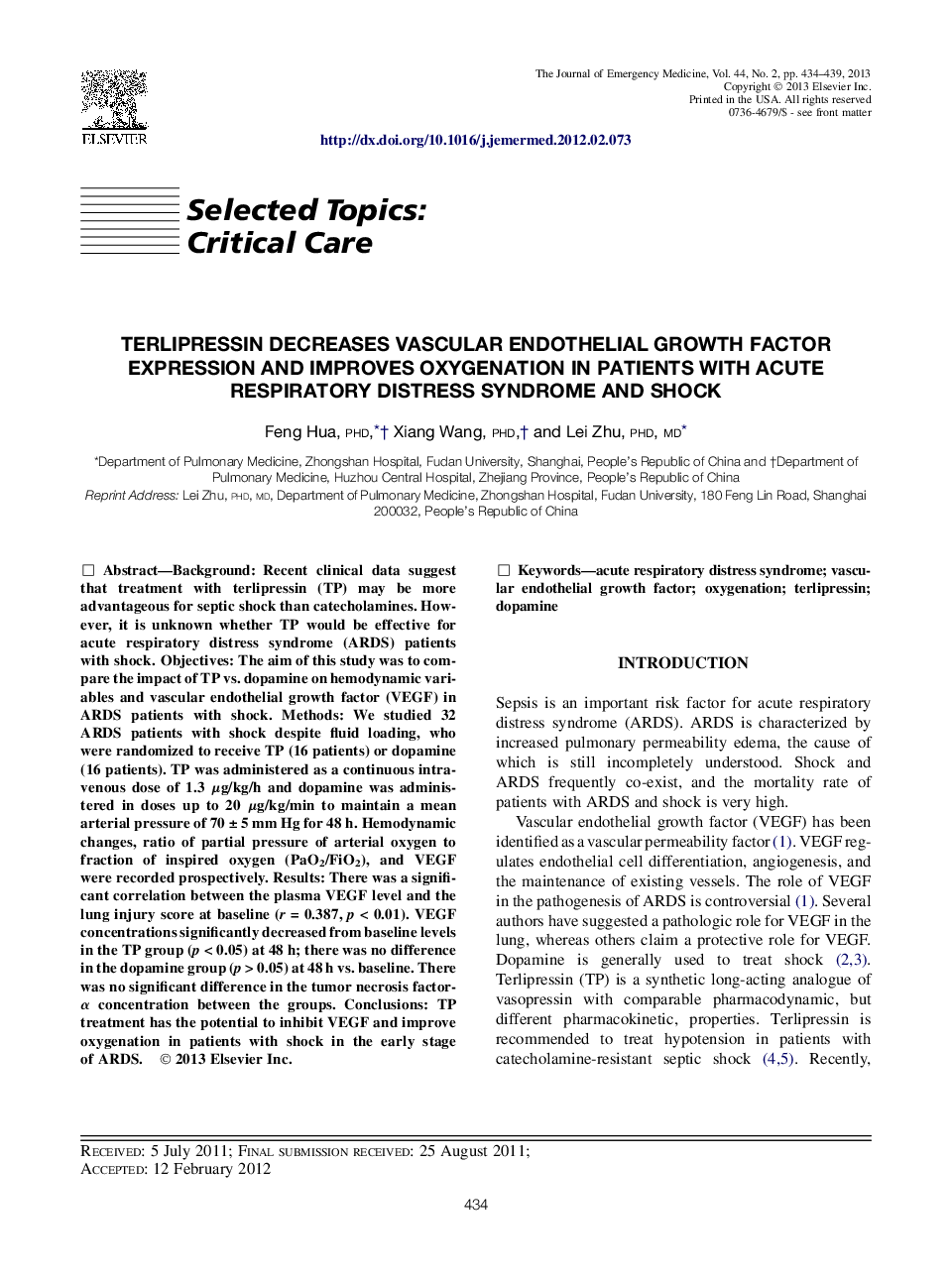| Article ID | Journal | Published Year | Pages | File Type |
|---|---|---|---|---|
| 3248315 | The Journal of Emergency Medicine | 2013 | 6 Pages |
BackgroundRecent clinical data suggest that treatment with terlipressin (TP) may be more advantageous for septic shock than catecholamines. However, it is unknown whether TP would be effective for acute respiratory distress syndrome (ARDS) patients with shock.ObjectivesThe aim of this study was to compare the impact of TP vs. dopamine on hemodynamic variables and vascular endothelial growth factor (VEGF) in ARDS patients with shock.MethodsWe studied 32 ARDS patients with shock despite fluid loading, who were randomized to receive TP (16 patients) or dopamine (16 patients). TP was administered as a continuous intravenous dose of 1.3 μg/kg/h and dopamine was administered in doses up to 20 μg/kg/min to maintain a mean arterial pressure of 70 ± 5 mm Hg for 48 h. Hemodynamic changes, ratio of partial pressure of arterial oxygen to fraction of inspired oxygen (PaO2/FiO2), and VEGF were recorded prospectively.ResultsThere was a significant correlation between the plasma VEGF level and the lung injury score at baseline (r = 0.387, p < 0.01). VEGF concentrations significantly decreased from baseline levels in the TP group (p < 0.05) at 48 h; there was no difference in the dopamine group (p > 0.05) at 48 h vs. baseline. There was no significant difference in the tumor necrosis factor-α concentration between the groups.ConclusionsTP treatment has the potential to inhibit VEGF and improve oxygenation in patients with shock in the early stage of ARDS.
